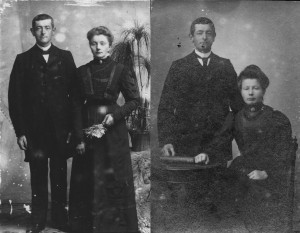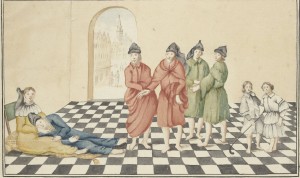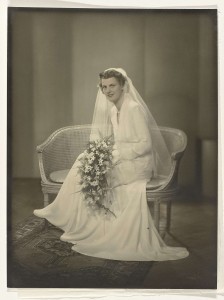If a couple that wanted to get married was related, either by blood or by marriage, they may have needed dispensation. For example, until well into the 1900s, it was illegal to marry your deceased spouse's sibling. My great-grandfather needed royal dispensation for his marriage to his late wife's sister. Marrying your first cousin or other close relative also required dispensation. These dispensations can hold key information about the family relationship. For an example, see My … [Read more...]
Twisted family relationships in Nijmegen
In the 17th century, a genealogical riddle was published in Nijmegen. The Nijmegen riddle A painting hangs in the Nijmegen Town Hall showing a young woman with an old man lying in her lap, with six sons standing next to her: two in red, two in green and two in white. The wife of the old man speaks: "Remark and see that I declare The two in red are my father's brothers. The two in green are my mother's brothers. The two in white are my children and I, the mother, am married to the … [Read more...]
Dutch term – Trouwen met de handschoen
Trouwen met de handschoen literally means "marrying with the glove" and means a proxy marriage. People marry "with the glove" if they can't be in the same location during the marriage ceremony. The bride or the groom is represented by someone with a power of attorney and the marriage will take place as usual, probably with the exception of the kissing of the bride! Originally, a glove was displayed to signify the absent party, which is how the procedure got its informal name. The formal name … [Read more...]
Quick tip: royal dispensations
Until 1939, it was forbidden to marry your sister-in-law or brother-in-law. Royal dispensation was required for such a marriage. Many widowed men who wanted to marry their deceased wife's sister applied for a dispensation. They were routinely granted, as in the case of my great-grandparents. Extracts of the royal dispensations can be found in the marriage supplements. … [Read more...]




